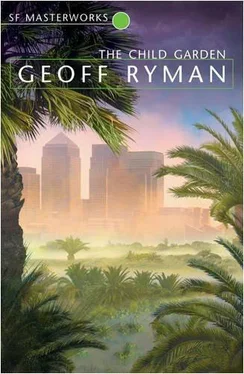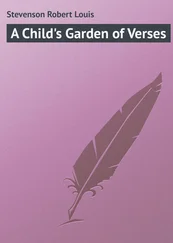You have just come! You have just come from out there!
Apples! Remember apples for us!
Swimming! Do you remember swimming?
They pecked at her memories with harmless, hungry beaks. It was like feeding the pigeons in Trafalgar Square. Milena could feel the prickling of their feet in her nerves.
They had such need.
Then they rose up again, the impulses, in a wave, in a flock. The impulses were the attention of other selves, drawn elsewhere. Milena sensed them rise up and turn elsewhere in hunger. Something else moved among them, something so huge she could at first only dimly feel it. The Crown of the World was remembering its many selves.
It was as if a giant hand were being stroked across all of them. Fondly, the Consensus was remembering. It remembered its previous lives and the patterns that formed and were formed by them. Oh yes, it seemed to say, I had forgotten that, oh yes, now I remember. You wore blue and were good at games; you climbed trees in sunlight; you could draw whole buildings from memory; you were very pretty and had terrible pain when your second set of teeth came through. You had both your parents with you until you were ten, and they came to your Reading with you, and they danced. Your parents! How you miss them, poor child, how you wish you could talk to them still. And how adult you all felt, how adult and proud on the day of your Reading.
There were explosions of remembrance, as if bombs were going off. Whole patterns were revived all at once, their whole lives racing past in waves as the attention of the Consensus revived them, brought them to life. There was a tumult. Identities soared through the pathways, into and out of Milena. These other beings were contiguous with her own. Their borders defined her borders. Their borders merged with hers. As they burgeoned with life, so she would contract, feel herself go small and faint, occupied by them.
I could lose myself in this she thought. I am lost in this.
Then everything went still and silent very suddenly. The Crown of the World had been playing with memory, but now it was business. Its attention swivelled around and bore down. It bore down on Milena.
It was as if she were suddenly filled to bursting. She could feel the patch of flesh on which she was imprinted ache. Everything in her seemed to expand and to crackle as if with static. It was then that she knew she was still made of flesh. She was a patch of flesh that ached.
No words were passed. A wave of information tore through her. It was fluid and heavy like mercury and it moved with such speed that she could hardly bear it. It slammed into her, filling her, weighing her down, it took up all of her being.
All at once Milena knew the Consensus would neither be fooled nor opposed by her. It knew Milena hated it. It needed her. She had a choice.
She was not in the Upper House. She was in the Lower House, with the Tykes. If she wished to be of use, then she would live. If she did not, she would stay in the Lower House. The patterns of the Lower House were kept only as long as their originals lived. When their originals died, they were wiped away.
Milena was about to die.
The diagram was passed again. Milena saw again the pattern of the giant calling head, an artificial astronomical feature. She saw it spreading light evenly in all directions, and she saw again a tiny mote moving out when there was an answer. She knew she has to be the messenger, bearing an imprint of the whole to the Other. Angel, said the Consensus, you could be an Angel. Milena had her answer ready. She could not speak.
With no hands, Milena groped, as if to feel the walls of a room about her. With no eyes, she tried to see, with no ears, she strained to hear her own voice speaking. She had no voice with which to speak. She was trying to find the limits of her own being, to find some sense of self. She was trying to find a way to say no. No is the word of independence. Milena had none.
She made the Consensus slightly weary. It was as if it had found some small particle of itself suddenly unwilling to do a dull but necessary task.
Again, no words came. Only undeniable will, unquenchable alien thought.
Then Milena would have to be a Composite.
She remembered Bob the Angel. He had a shadow self, a scientist called George. She remembered this silent shadow, a part of someone else who provided spare capacity, but who could never speak, never act. She would be a shadow, like Heather had been to her, like George the scientist was to Bob. She would be like the viruses, half-alive, a facility in someone else’s mind.
No! she managed, a sudden writhing of rebellion.
The great being had all the time and little time. If Milena meant no, then Milena would stay down. She would stay in the Lower House and be wiped, except for the part of her that the Consensus wanted.
The Consensus wanted her capacity to imagine. They wanted her capacity to imagine twenty-two billion flowers, one for each of the souls it held — and one for each of the children it had not yet read. Milena would imagine the Consensus, its great and complicated self, and carry that self out to the stars. She would be a bearer of messages, like Jacob, a blank to be filled, a tool. She would be less than Jacob, for Jacob could walk and talk. She would be reduced to a framework for memory as if she were a skeleton picked bare.
Then like a great whale moving through muddy, sluggish waters, the attention of the Consensus was withdrawn. Milena felt power withdrawn from the circuitry of thought. She felt herself shrink, like a forgotten memory stored so far back in the mind that it is never recalled.
As the whale swam, great schools of tiny beings were stirred up by its presence, as if out of the mud. There were Shockwaves of sudden awakenings as whole selves were briefly recalled, flaring up with all the yearning and joy and daily being of their distanced lives. The impulses rose up like fireworks whistling, scattering fire. Then they fell back into the silence.
As the Crown of the World withdrew its gargantuan bulk, Milena saw its outline. She sensed the framework that held fifteen billion souls in half life. She sensed all the Crowns scattered across the world like the root system of mushrooms. And Milena sensed that it was afraid. The Consensus was made of flesh; and flesh was afraid of dying.
Fear was what impelled it. Fear meant it needed her for its interstellar purposes. Fear made it want Milena to love it. Fear made it dangerous.
Milena the pattern felt her new mind go drugged and dull. I have made a choice, she thought. I fought back as I could. I was not afraid. She felt the forest around her. It was a forest of children, held and trapped. A Child Garden indeed, each flower with a forgotten face, blooming briefly and then closing again.
The Consensus was a framework as Milena was a framework. It was a logic, like time or money or storytelling, like birth, like death, like capitalism or socialism.
There always is a Consensus. We always do what it wants us to do because we are part of it and it is part of us. We are embedded in it, and so we obey the logic. We are born, we have to eat, we are left alone and we have to survive in the ways that are open to us. We obey the logic of love and sex and of health and disease of ageing and infancy and death. If we escape one framework, we move into another. If we make a new framework, we imprison our children in it. We have always fought to escape the Consensus and have always done its will. We fight and obey with one motion.
Milena listened to the fading cries of the children. I tried to help them she thought, as sleep overcame her.
I am going to die. I have been expecting to die for months. Death comes as no shock. I am not free and never have been, but death is no surprise.
Читать дальше












